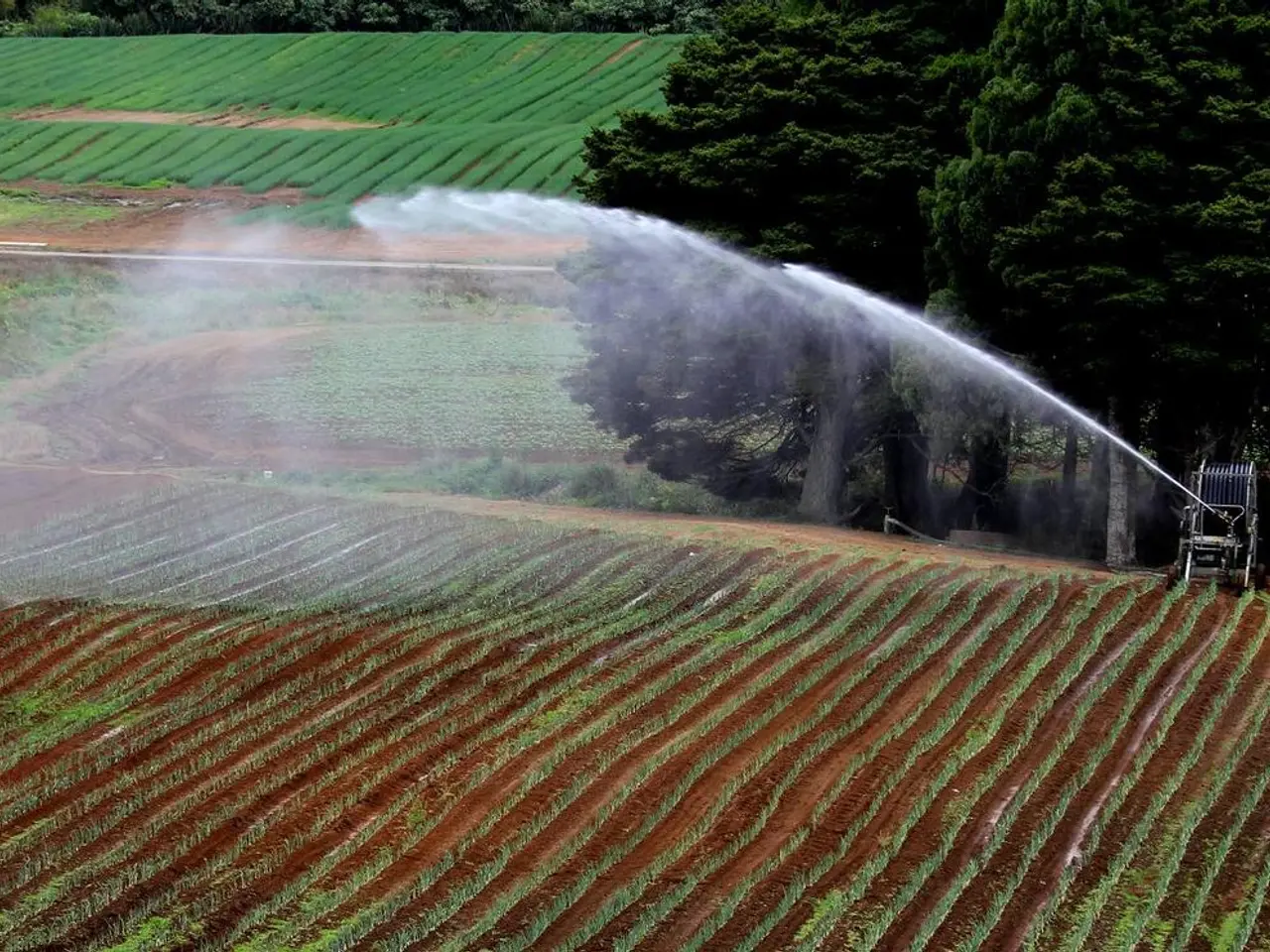AI Potential for Small Farms in Competition with Large Agricultural Companies?
Small-scale farmers are increasingly leveraging Artificial Intelligence (AI) to compete with large agribusinesses, improving efficiency, resource management, and productivity while reducing costs.
Automation and Remote Control
AI-driven systems like AquaSmart Pro are revolutionizing small-scale farming by managing critical parameters such as nutrient levels, pH, and oxygen without human intervention. Remote smartphone integration allows farmers to monitor and respond quickly to issues, thus improving operational responsiveness and reducing labor dependency. [1]
Resource Optimization
Precision application of water, fertilizers, and pesticides is another key benefit of AI tools. For instance, precision irrigation can reduce water use by 20–30%, while crop health AI can reduce fertilizer and pesticide use by 18–25%. [2][3]
Sustainability and Productivity Gains
Studies have shown AI adoption on small farms leads to measurable impacts such as 40% water efficiency improvements, doubling cultivated land size in some African smallholder cases, and yield increases between 13-27% for various crops due to better pest, disease, and stress detection with satellite and IoT data. [4]
Policy and Financial Support
Recent legislation, such as the Sustainable Agriculture Advancement Act in the US, supports AI adoption on small farms by simplifying permitting processes and offering grants that cover up to 30% of adoption costs, making the transition more affordable and less risky for smallholders.
Overcoming Challenges
However, smallholders often lack training opportunities, support staff, or time to experiment with AI tools. Platforms like Hello Tractor connect tractor owners with farmers who need machinery but can't afford to buy, using AI for optimization of routes and analysis of usage data.
Adapting Business Models
Business models for AI tools need to be adapted to suit the needs of small farmers, such as usage-based pricing, shared ownership models, and "AI-as-a-service" cooperatives.
Building Trust and Collaboration
Trust remains a significant issue for small farmers when it comes to AI, as they may feel uncertain about relying on algorithms they can't fully understand. The narrative around small farmers needs to shift, treating them as clients, experts, and innovators, and building AI solutions with their input and collaboration.
Empowering Small Farmers
AI tools like PlantVillage and FarmBeats are helping smallholders diagnose crop diseases using image recognition and machine learning. These technological and policy advances enable small-scale farmers to use data-driven smart farming tools that improve productivity, reduce costs, and environmental impact, thus strengthening their position vis-à-vis large global agribusinesses. [3][4]
Bridging the Technology Gap
The integration of AI narrows the technology gap by leveraging satellite data, IoT sensors, and machine learning which were historically the domain of big players. AI tools are designed for simplicity, with clean interfaces, local languages, and offline-first design, making them usable in areas with unreliable internet and limited formal education. [1]
The Future of Small-Scale Farming
AI is becoming an integral part of daily decision-making for small farmers, offering a second opinion in the field and putting technology into hands that have long been overlooked. The cost of AI technologies is decreasing, making them more accessible to small farmers. Partnerships between governments, NGOs, agri-cooperatives, and private tech companies are essential for AI to reach small farmers, providing training, financing, and ongoing support. [1]
[1] Source: World Economic Forum [2] Source: FAO [3] Source: McKinsey & Company [4] Source: International Food Policy Research Institute (IFPRI)
- Small farmers can use technology like PlantVillage and FarmBeats, AI tools that offer image recognition and machine learning, to diagnose crop diseases and empower their personal-finance and small-business management.
- The incorporation of data-and-cloud-computing technologies, such as satellite data, IoT sensors, and machine learning, into AI tools like AquaSmart Pro, makes them usable in areas with unreliable internet and limited formal education, bridging the technology gap between small and large businesses.
- Policy support, such as grants offered by the Sustainable Agriculture Advancement Act, can help streamline the process of adopting AI tools for small-business owners in agriculture, reducing risks and making these technologies more affordable.




